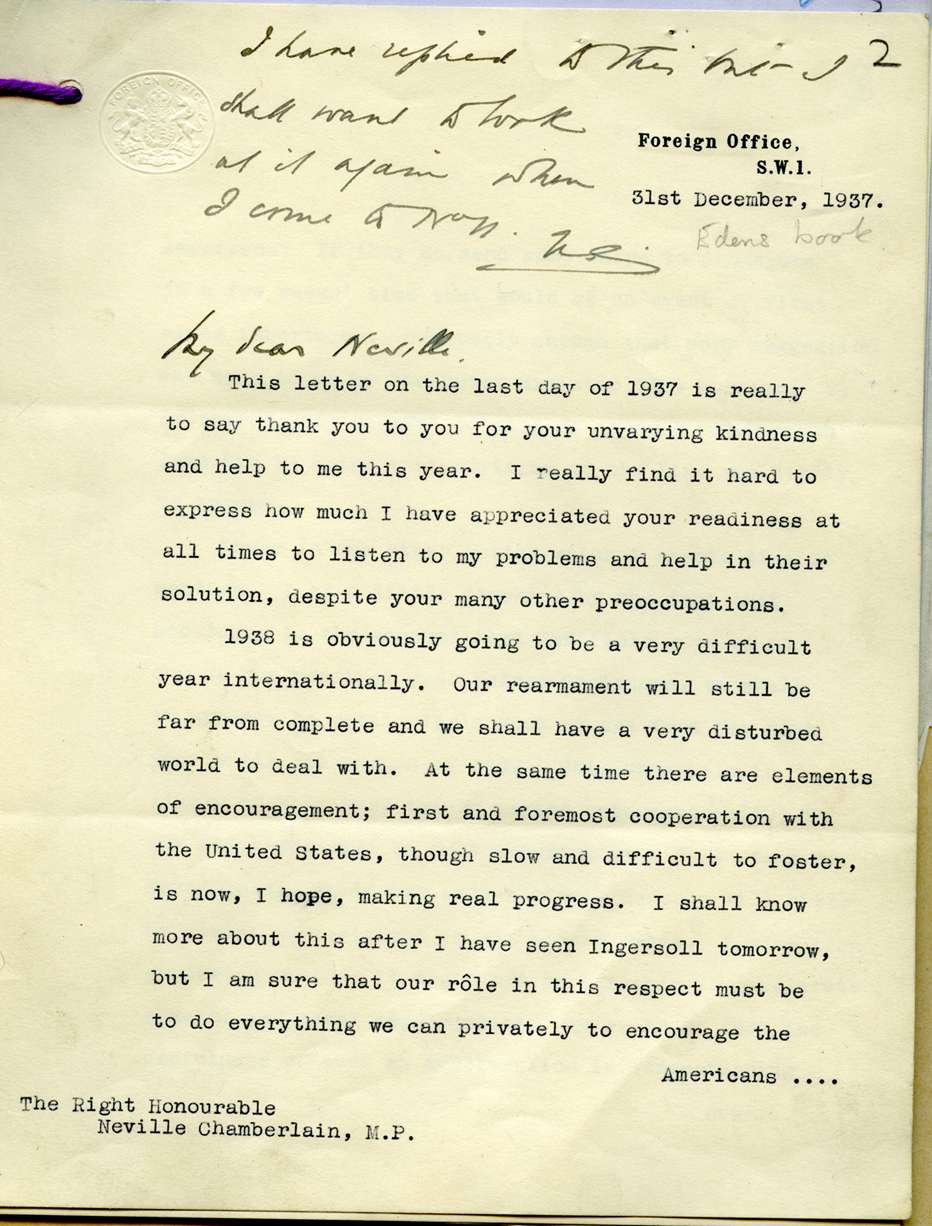Letter from Anthony Eden to Neville Chamberlain, 1937 (PREM 1/210)
Transcript
I have upheld to this but I shall want to look at it again when I come to No.11, Neville
Foreign Office
S.W.1
31st December,
My Dear Neville,
This letter on the last day of 1937 is really to say thank you to you for your unvarying kindness and help to me this year. I really find it hard to express how much I have appreciated your readiness at all times to listen to my problems and help in their solution, despite your many other preoccupations.
1938 is obviously going to be a very difficult year internationally. Our rearmament will still be far from complete and we shall have a very disturbed world to deal with. At the same time there are elements of encouragement; first and foremost cooperation with the United States, though slow and difficult to foster, is now, I hope, making real progress. I shall know more about this after I have seen Ingersoll tomorrow, but I am sure that our role in this respect must be to do everything we can privately to encourage the …
- Can you describe the tone of the letter in the first paragraph? Is it formal or informal?
- Was it intended to be read by Chamberlain alone do you think?
- What evidence is there from the letter that Eden thought it important to build US support?
- Which aspects of Britain’s defences did Eden think needed improving?
- What phrases can you find in the letter that show that Eden seemed to be underplaying his concerns? Clue: think about use of language and tone.
- What do you think the hand written comment made by Chamberlain at the top of the letter suggests? Clue: ‘No. 11’ refers to Downing Street the offices of the Chancellor of the Exchequer.
- Why did Eden write this letter to Chamberlain?
- Can you find evidence in the letter for any of the following reasons?
- Eden was trying to put pressure on Chamberlain
- He was trying to alert Chamberlain to the fact that Britain was playing a weak hand and needed a strong ally
- He was calling for rearmament to be taken more seriously
- The letter indicates fundamental tensions over foreign policy which could to flare up later
